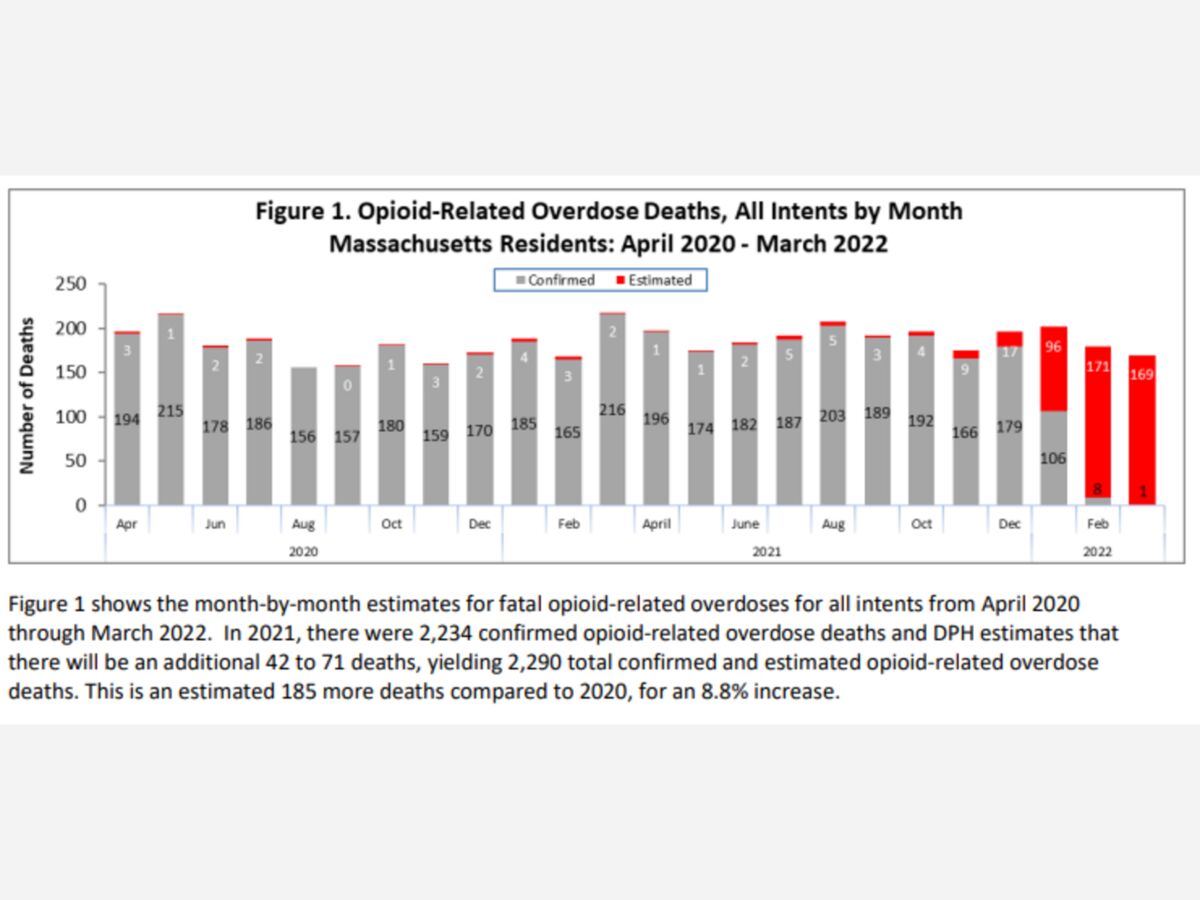Image

The rate of opioid overdose deaths in Massachusetts climbed 9 percent last year, to a level that surpasses the state's previous high point in 2016.
Data released Wednesday by the Department of Public Health tracked an overdose death rate of 32.6 per 100,000 residents in 2021, up from 29.9 in 2020 and 28.8 in 2019.
Last year's death rate, the department said in its opioid report, is 6.2 percent higher than the past peak of 30.7 per 100,000 residents logged in 2016, when Gov. Charlie Baker signed a law intended to slow what former Speaker Robert DeLeo at the time called a "public health crisis that is draining vitality from our hometowns, extinguishing lives and stealing souls."
However, according to the State data, Franklin's situation was trending in a bettere direction. Some 7 people lost their lives in 2018 , 5 in 2019, 3 in 2020, and 3 in 2021.
"Today's report underscores the harmful impact that the COVID-19 pandemic and the scourge of fentanyl have had on those struggling with addiction, and we are committed to continuing our work with the Legislature and our colleagues in the addiction and recovery community to boost access to services and treatment," Gov. Charlie Baker said in a statement.
Presenting the data during a Wednesday morning Public Health Council meeting, DPH Commissioner Margret Cooke said that while the 9 percent climb from 2020 to 2021 "is significantly lower than the national trends, it is problematic for Massachusetts and for our country."
Preliminary 2022 data -- which includes both confirmed opioid overdose deaths and those estimated through a modeling process -- offer some "slightly encouraging" news, Cooke said.
The estimated 551 deaths for the first three months of the year is 4 percent lower than 575 logged in the same period in 2021, she said, while acknowledging the early figures are likely to change as more complete information becomes available.
Cooke said the latest data show continued high presence of the powerful synthetic opioid fentanyl in fatal overdoses and pointed out what she called "concerning trends" when looking at the deaths by gender, race and ethnicity.
She said the 2021 opioid-related overdose death rate for American Indian/Alaskan Native residents was more than three times higher than the state average, and highlighted a partnership between the Department of Public Health's Bureau of Substance Addiction Services and UMass Boston's Institute for New England Native American Studies that focuses on culturally appropriate education and prevention.
"And although they account for a relatively small number of opioid-related overdose deaths -- 13 -- the American Indian/Alaskan Native residents statistically had the highest opioid-related overdose death rates among all race/ethnicity groups last year, and we know that even one death is too many," Cooke said.
Wednesday's opioid report was the first one that broke out a distinct rate for American Indian, non-Hispanic residents, Cooke said.
It also newly featured information on the presence of alcohol in opioid overdose deaths where a toxicology screen occurred.
Toxicology reports were available for 2,119 fatal opioid overdoses in 2021, the DPH said. Of those, fentanyl was present in 93 percent, cocaine in 51 percent, benzodiazepines in 31 percent, alcohol in 29 percent, prescription opioids in 13 percent, and heroin and amphetamines each in 10 percent.
SHNS